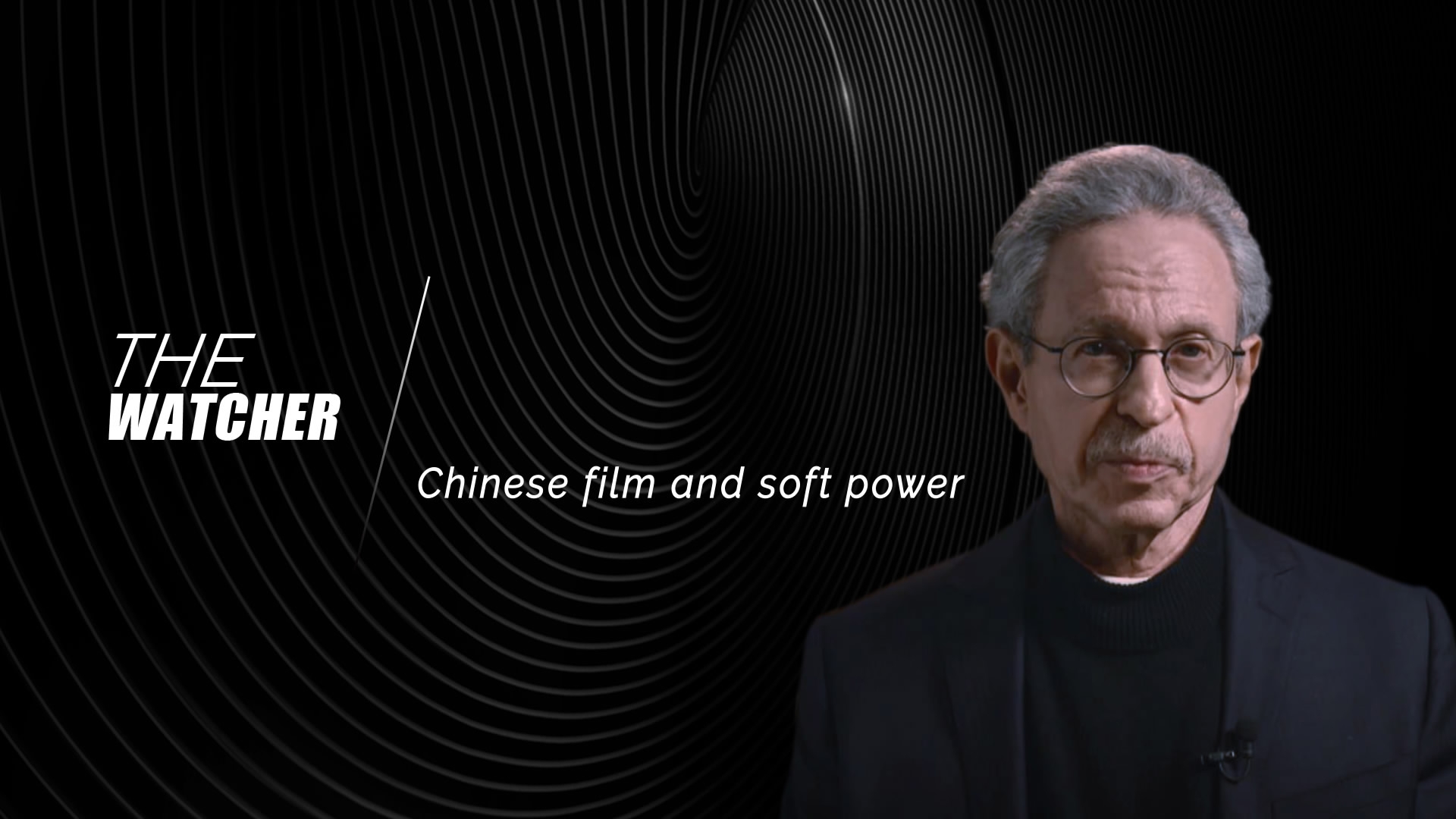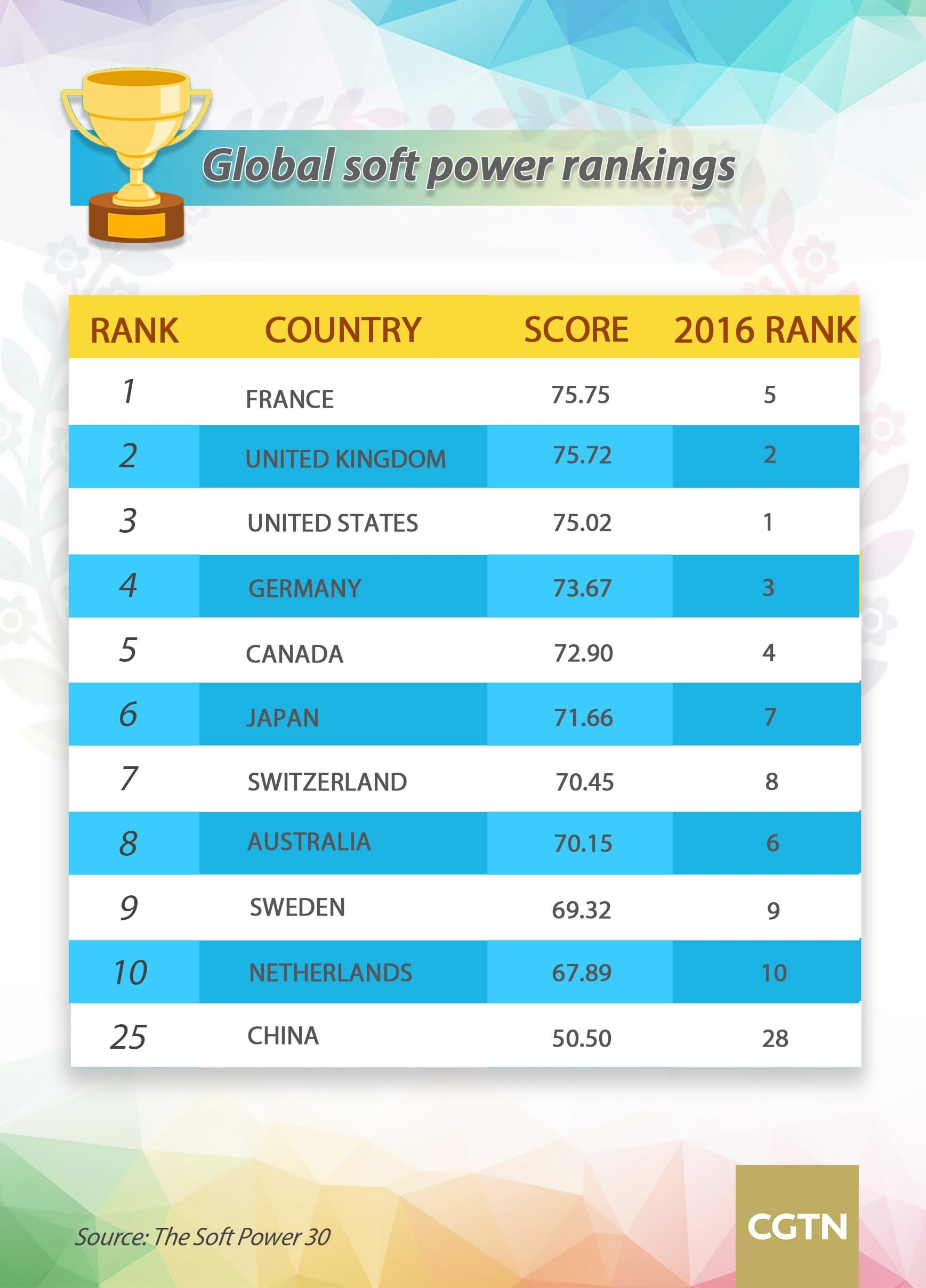
Opinions
15:24, 13-Feb-2018
The Watcher: See how Chinese movies build its soft power
Guest Commentary by Robert L. Kuhn

Last year was the best year ever for China’s film industry – the box office rose 13.5 percent to 8.6 billion US dollars, with an audience of over 1.6 billion. Domestic productions took 54 percent of the market. Since 2012 more than 100 Chinese movies and TV series are exported each year – primarily to Africa, Central and Eastern Europe and its Asian neighbors. China's movies may have played a contributing factor to China's rise in the global Soft Power Index, from 28 in 2016 to 25 in 2017.

2017 global soft power rankings at a glance
2017 global soft power rankings at a glance
Why is China’s soft power deemed a matter of strategic importance? China has three core interests: its political system, its economic development, and its sovereignty (territories and borders).
Soft power protects all three by changing the narrative from negative portrayals of China – human rights, strict social regulations – to President Xi Jinping’s grand vision of a new kind of global governance and China’s "broad strategic vision of building a global community with a shared future.” Moreover, countries that appreciate China’s culture are more likely to appreciate China’s position on matters of diplomacy, as well as helping to increase trade and business.

Actor Jackie Chan attends the 89th Annual Academy Awards at Hollywood & Highland Center on February 26, 2017 in Hollywood, California. /VCG Photo
Actor Jackie Chan attends the 89th Annual Academy Awards at Hollywood & Highland Center on February 26, 2017 in Hollywood, California. /VCG Photo
Meanwhile, China has soft power challenges. One is language. Another is the perception that China’s political system does not feature the kind of freedoms and human rights that are considered universal ideals. Yet another is because China is so large, diverse and developing so rapidly, that even modest efforts to protect what it believes to be its sovereign rights can be perceived to be aggressive or even bullying. There is no magic bullet in building soft power.
Doing many small things with different constituencies is often more effective than mounting large imposing events that could wind up intimidating and reinforcing a negative image. Training the next generation of young leaders from developing countries is a good strategy. Other countries should not have want to be like China. They should only appreciate China and China’s contributions.

The Youth (2017) movie poster /VCG Photo
The Youth (2017) movie poster /VCG Photo
I’m pleased that China is building its soft power – for two reasons that may sound contradictory but are complementary. On the one hand, China will be more appreciated, disrupting foreign stereotypes. On the other hand, by learning what it takes to develop soft power, China will need to self-reflect, evaluating its policies as they affect others, because meaningful and enduring soft power comes from what’s inside the package, not from what it’s wrapped in.
(Dr. Robert Lawrence Kuhn is a CGTN anchor, a public intellectual, international corporate strategist and investment banker. )

SITEMAP
Copyright © 2018 CGTN. Beijing ICP prepared NO.16065310-3
Copyright © 2018 CGTN. Beijing ICP prepared NO.16065310-3